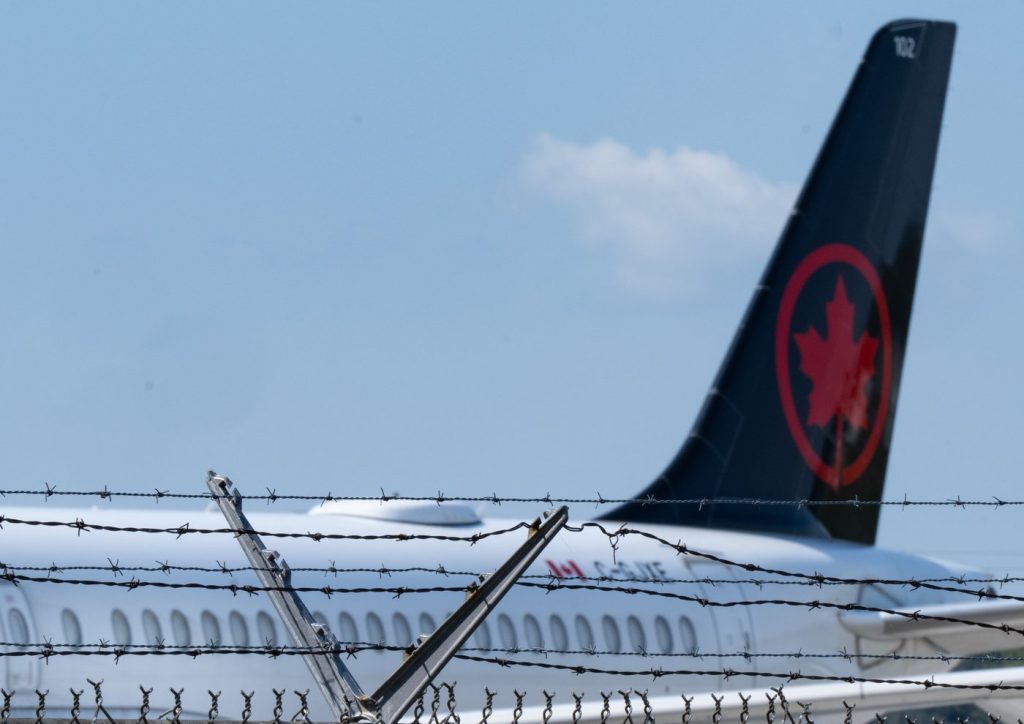Air Canada Flight Attendants Laminate National Day of Action
Air Canada flight attendants are gearing up for a national day of action, with picketing scheduled at major airports in Canada, including Montreal's Pierre Elliott Trudeau International Airport, Toronto Pearson International Airport, Vancouver International Airport, and Calgary International Airport. Organized by the Canadian Union of Public Employees (CUPE), the demonstrations are set to take place at 1 p.m. ET on the day of the action.
CUPE announced that the Air Canada component of the union was slated to return to bargaining talks with the airline following a significant vote in which 99.7% of its members supported a strike mandate. This vote, which concluded last Tuesday, opens the possibility for flight attendants to walk off the job as early as August 16 at 12:01 a.m. ET, provided they give at least 72 hours' notice. Air Canada, however, expressed confidence in reaching an agreement and avoiding disruptions for the traveling public.
Severe Heat Warnings Across Canada
In weather updates, severe heat warnings are in effect across multiple regions in Canada. The extreme temperatures and high humidity are anticipated to impact residents in Ontario, Quebec, and the four Atlantic provinces. Environment Canada has issued warnings for all of southern Ontario, which extends north past Lake Huron and Georgian Bay, as well as areas in southern Quebec.
Daytime temperatures are projected to hit highs of 35 degrees Celsius in certain regions, with the humidex potentially reaching or exceeding 40 degrees Celsius. Similar weather conditions are reported in Atlantic Canada, where most of New Brunswick, Nova Scotia, Prince Edward Island, and portions of Newfoundland and Labrador are under heat advisories. Furthermore, British Columbia is also experiencing heat warnings, affecting most of Vancouver Island, the Sunshine Coast, and southern regions including Fraser Canyon, South Thompson, and South Okanagan.
Saskatchewan Court of Appeal to Ruling on Pronoun Law
The Saskatchewan Court of Appeal is expected to deliver a ruling regarding the province’s appeal of a decision that allows a challenge to its school pronoun law. This significant case centers on a law requiring parental consent for children under 16 wishing to change their names or pronouns at school, which came into effect in 2023. A judge previously permitted the challenge, despite the government invoking the notwithstanding clause, and LGBTQ+ group UR Pride has argued that the law inflicts irreparable harm on gender-diverse youth. The government maintains that the enforcement of the law should conclude the court challenge.
Caroline Desrochers Becomes MP for Trois-Rivières
In political news, Caroline Desrochers has become the only federal public servant elected in the recent federal election, securing her position as the Liberal member of Parliament for Trois-Rivières, Quebec. With a career at Global Affairs Canada lasting nearly 25 years, Desrochers’ initial posting was in Haiti, followed by significant roles concerning Canada-U.S. relations, including a tenure in New York during former President Donald Trump’s administration. Desrochers emphasized her desire to engage in work that brings her closer to the community.
Previously, Desrochers ran in the La Prairie riding in 2021 but was defeated by Bloc Québécois candidate Alain Therrien. Now, she believes that her experience dealing with issues such as steel and aluminum tariffs will be invaluable in her new role during this critical time.
New Research on 'Megathrust' Quake Zone Off B.C. Coast
Scientists have successfully captured the first intricate images of the tectonic plate convergence off the northern British Columbia coast, an area identified as capable of generating significant “megathrust” earthquakes and tsunamis. This research reveals a relatively rare geological phenomenon described as a subduction zone in its initial formation. The study, published in the peer-reviewed journal Science Advances, indicates that the Queen Charlotte plate boundary is experiencing the early stages of such a zone, where one plate slides beneath another.
The region has a history of seismic activity, being the site of Canada’s two largest earthquakes in recent memory, one measuring magnitude 8.1 in 1949, and another at magnitude 7.8 in 2012. Co-author Michael Bostock, a professor at the University of British Columbia, warned that as the fault line evolves, the likelihood of increasingly powerful “thrust” earthquakes may rise, with the next one potentially being more intense.











